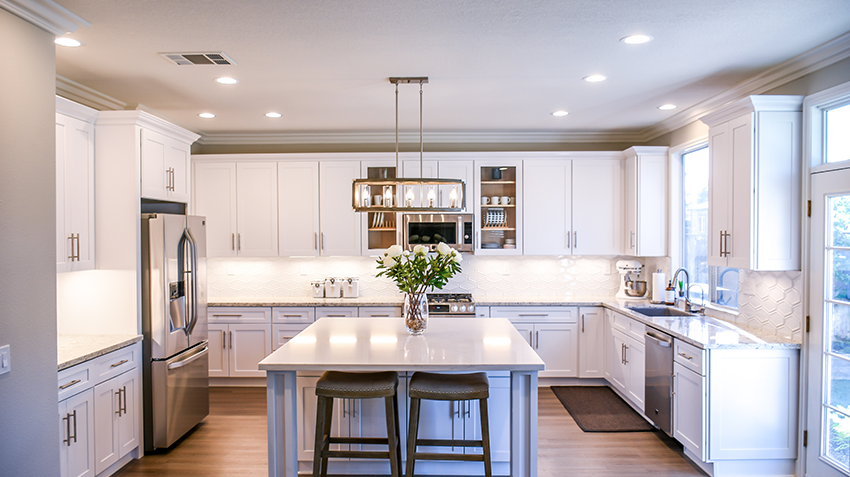Have you recently thought about selling your home? Want to know what gets factored into the price? The value of your home is impacted by many things. Pricing a home accurately is challenging. Effective home valuations will make your home selling process quicker and smoother. Knowing the proper value of a home can help you secure the best deal possible.
These factors have a powerful effect on your home’s value.
1. Updates/Improvements Since Buying
Renovations can add a great value to your home. For example, if your home was built in 2010 but you renovated the entire home in 2018, you will have tremendously increased the value of your home. Also, many new constructions don’t come with a finished basement. If you are looking to sell your home, it would be smart to finish the basement to add value. Make your home as attractive as possible with upgrades and renovations.
2. Historical Sales Prices of Your Home
This is one of the first factors looked at by real estate agents, appraisers, and prospective homebuyers. For example, if your property has been sold twice over the past year, for $320,000 and $325,000, it would make sense to start the valuation around that $320,000 mark. From there, adjustments can be made, to the value, based on other factors.
3. Neighborhood
The neighborhood that your home is in is responsible for not only qualitative aspects but also quantifiable aspects of the home’s appeal. For example, your home may be in a highly rated school district. The quality of the school system and the cost of a home tend to correlate. Also, if the homes in your neighborhood are all valued between $300,000 and $500,000 it is safe to say your home value will be in that range.
4. The Current Market
The state of the current housing market matters. Home values are built by supply and demand. They have the chance to fluctuate based on changes in the economy of your area. For example, if there aren’t many homes available but many people are trying to buy a home, home prices will increase. Also, if the nation’s overall economy is thriving, there will also be an increase in home prices.
5. Square Footage
Many buyers look specifically at price per square foot. That being said, the size of a home has a high influence on its value. Larger homes will tend to sell at higher prices. Consider the overall appeal of the home as well. For example you may have a home that is 4000 square feet but if the layout, design, and overall appeal isn’t up to par, you may have to sell your home at a lower price per square foot.
6. Age & Condition of House
Newer homes will always sell at a higher price than older homes. Typically, this is because they require less maintenance, remodel, and upgrade. On the other hand, an older home that has been well kept up by its owner may sell for just as much as a new home. Key takeaway here is the condition of your home matters tremendously. Buyers will often look at the home’s structural integrity, foundation, fixtures, walls and more. Consider these when looking to sell your home.
7. Local Amenities & Landmarks
Think about where the property is located, in relation to local amenities and landmarks. Homes closer to large shopping locations, and easy highway access, will typically sell at higher prices than homes farther away from everything. It is definitely worth it to hire a professional appraiser to get a good second opinion and reinforce your home’s valuation.
8. Visual Appeal
People will naturally gravitate to things that are visually appealing. For example, if your home is stone on the outside with an extravagant entrance, and the inside has custom ceilings and arches with up to date color pallets, it will attract more buyers and thus you can price your home higher. Visual appeal is a good and easy way to sell your home to the public. Think of updating your decor and painting some walls before listing your home. Be sure to choose the right person to capture pictures for your listing.
Final Thoughts
There are many factors that impact the value of your home, some of which are outside of your control. That is why it is critical to do everything you can to improve the value by making updates, fixing issues, and improving the appeal and condition of your home when selling. This will help to potentially maximize your sale price and minimize your days on the market.




